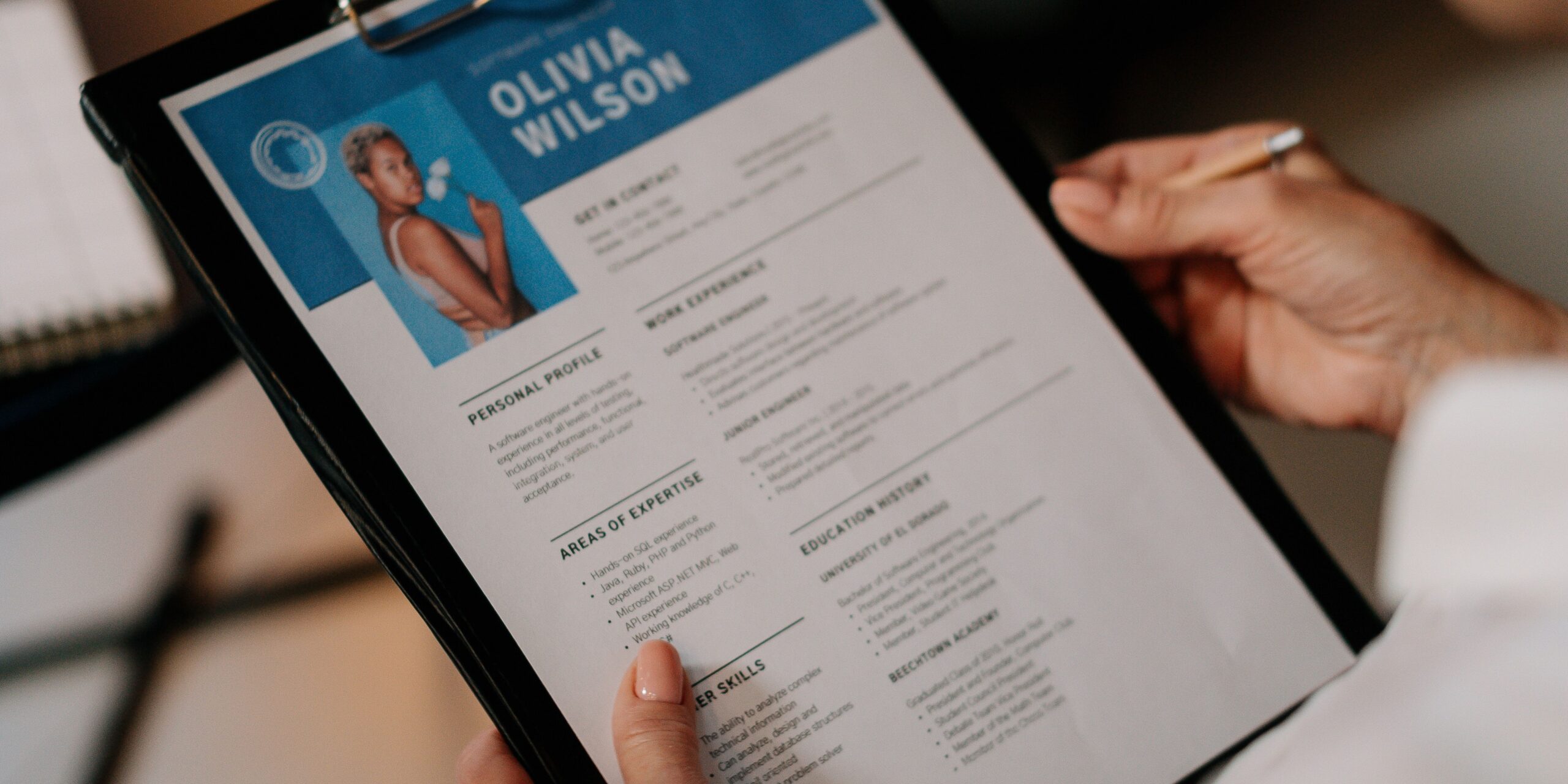Tell me about yourself can be the introductory question in the majority of your interviews. You must first understand why they are asking the question to provide a more appropriate response. This question is intended to ease any awkwardness and help you feel more at ease throughout the interview.
However, these and other interview questions about you like why should I hire you could be a little nerve-wracking for some individuals. These inquiries, however, might be challenging to respond to if you don’t enjoy bragging about yourself. Since they’re a useful tool for the hiring manager to learn more about your personality, it pays to be prepared to respond to them.
Let’s take a look at the topics we’ll be addressing in the post before we just get into the actual response to the question, tell me about yourself. Consequently, this post will provide you with a general notion of the dos and don’ts. Additionally, we’ll discuss a few useful hints and several sample examples.
Things to avoid while answering “Tell me about yourself“

1. Outlining every experience on the resume
In some cases, listing every job you’ve ever held could work against you in an interview. The interviewer may be initially impressed if you list every previous position on your CV. But, he’ll also have additional questions for you. Additionally, these extra inquiries frequently cause the interviewer’s focus to stray from the crucial data.
2. Introducing your extracurricular activities or areas of interest
It might sound like a first-date query. But this isn’t, I assure you. You might have to reveal a little bit of your genuine self in order to answer this question, but you don’t have to. This specific inquiry requires a very professional and deceptive response.
3. Using overboard statements
Some people have a terrible tendency to brag. Using phrases like “I was the best student in the class” or “I can solve any problem”. Such claims may not make you appear large and visible in the interviewer’s eyes. But they may give the impression that you are arrogant, inflexible, and self-centered. Instead of bragging about such phrases try to talk about your achievements which are more attainable (realistic) and quantifiable (measurable).
4. Talking about your family and personal life
Tell me about yourself is an open end question and most of the time people get the wrong idea about it. No, you don’t have to provide your family details or your personal information to the interviewer. Trust me the interviewer has no interest in your family or personal life. Even though all this information is irrelevant to him and will ultimately go against you. Be concise and relevant that how are you suited for the job tell some details that are not mentioned in your resume that could provide you a little edge. For example: “I prefer to take a short break after successful completion of my tasks.”
5. Not maintaining proper eye contact
Freshers frequently struggle to maintain eye contact with the interviewer. One explanation might be that beginners often lack the confidence or courage to express themselves, or another could be a total blank-out. Making improper eye contact with the interviewer communicates a lack of confidence and a lack of seriousness about the interview.
6. Taking too long to answer
Because the subject “Tell me about yourself” is so open-ended, newcomers mistakenly believe they may talk about it all day. No, the interviewer is too busy and they have other people to interview today. They don’t have time to sit and listen to your life story for the entire day. Therefore, before responding to this question, one should take this in mind. The general rule for solving this problem is to try to finish the solution in one to two minutes. Anything more than two minutes may put the interviewer’s interest in danger of waning.
7. Lying to the interviewer
The biggest blunder you can make in an interview process is lying. Some candidates try to lie to the interviewers about their qualifications, their achievements, or even their experience (sometimes by even forging their documents). Some get away with it, but a lot of them get caught. If not during the interview, they get caught later in their careers.
Points to focus on while answering “Tell me about yourself”

1. Think
Spend some time reflecting a few days before the interview. What characteristics define you as who you are? Things that distinguish you? What do you contain? You may be a reader, a guitarist, a movie enthusiast, a superb chef, a writer, and many other things a mechanical engineer, a software engineer, an arts graduate, or a software engineer with a distinctive programming style. Simply identify the unique qualities that make you the ideal candidate for the job or position being offered.
2. Practice
Frame the answer to this question and write it down. Spend some time crafting a superb response that is entirely original. In this manner, it won’t seem arrogant when you say it.
3. Proof
Your whole response to the question must contain details that back up the information on your resume must be included throughout. Your entire CV should, in fact, discreetly reflect the answer to this question.
4. Mention
Indicate which resume facts support your response while addressing the query. Once more, subtlety is the key.
5. Be concise
The response needs to be concise enough to seem genuine and not rehearsed. When finished, look directly into the interviewer’s eyes to anticipate the following query.
Are you ready to talk about yourself during a job interview?

We’ve covered some of the most typical mistakes people make while answering questions as well as some advice to bear in mind. Let’s continue and take a closer look at a few of the short and potentially effective responses to the query “Tell me about yourself.”
Sample answer 1
“I have excellent interpersonal skills and am a self-starter. I’m a productive team player as well as an individual contributor. I attempt to think creatively and look for novel solutions to problems as I seek out new challenges. In addition to the information in my resume, I appreciate character, values, vision, and action. Being a quick learner, I firmly think that learning from my errors will advance my profession and quality of life.”
Sample answer 2
“I was born and raised in [place name], attended [school name], and it wasn’t until I was in the ninth grade that I really became interested in the internet and technology. I continued my passion by attending [college name] to earn my bachelor’s degree in computer science and engineering. The classes in my curriculum that I found most fascinating were [favorite subjects]. These courses stoked my desire to learn more about computer-related topics. In addition to my coursework, I took part in a number of art and culture-related activities hosted by my institution. In terms of my line of work, I am currently a qualified fresher computer programmer and use a variety of languages, including [according to your skills].
A huge love of mine outside of job and school is playing the guitar, which is a fantastic stress reliever for me.”
Sample Answer 3
“First of all, I want to thank you very much for this wonderful opportunity.
[your name] is my name. My mother [mother’s name] is a [mother’s occupation] and my father, [father’s name], is a [father’s occupation]. My [number of siblings if any] other siblings are still [sibling’s occupation]. I received my engineering degree from [college name] in [year of passing out]. I worked really hard on various testing-related projects throughout my undergraduate studies, and I even received credentials for them. Now I want to advance my career by working as a software tester for your reputable company, where I also want to get a chance to supervise people in my line of work.”
Conclusion
The first thing you should do before an interview is get a good seven hours of sleep. Eat something before your interview. Get rid of all the negative ideas and project confidence. Don’t consider the result because you have no influence over it. Approach the situation with optimism. It’s normal to feel anxious around unfamiliar individuals, but practice makes perfect.
Can I share a tiny secret with you? I want you to know that it’s acceptable if you make a few grammatical mistakes. You don’t have to ruin the rest of your interview because you noticed a small grammatical mistake. Keep your confidence high. Minor errors are hardly noticed if you go confidently and honestly.
During an interview, it might not be feasible to be totally honest. You could be quitting your current position because of friction with your management or superior. However, you are not required to be completely frank about this. When necessary, be sincere. When discussing your accomplishments and talents, be sincere. Keep the discussion professional and interesting. If the interviewer asks a question that you do not want to answer, do not take it personally. Try giving a succinct (brief) response and directing it back to the primary track. Mention that you would be more than happy to accept further tasks. You want the interviewer to have the impression that you can work under duress and yet achieve deadlines. You run the risk of missing some crucial information if you are rushing. Be concise in your response to secure the position.
Was this helpful?
Introducing Bhaskar, your tech-savvy neighbor turned wordsmith extraordinaire. Over the past few years, Bhaskar has become the trusted authority for unraveling the mysteries of iOS, Android, macOS, and Windows. Armed with a B.Tech degree, he has dedicated himself to making technology easy to understand for everyone. His expertise shines through his contributions to well-known publications like Guiding Tech, iGeeksBlog, GeekFrost, and MakeUseOf (MUO). Bhaskar excels in creating straightforward how-to guides and comprehensive articles that make the complex tech landscape accessible to all. When he's not diving into the tech world, you'll find him enjoying music or indulging in sports.





